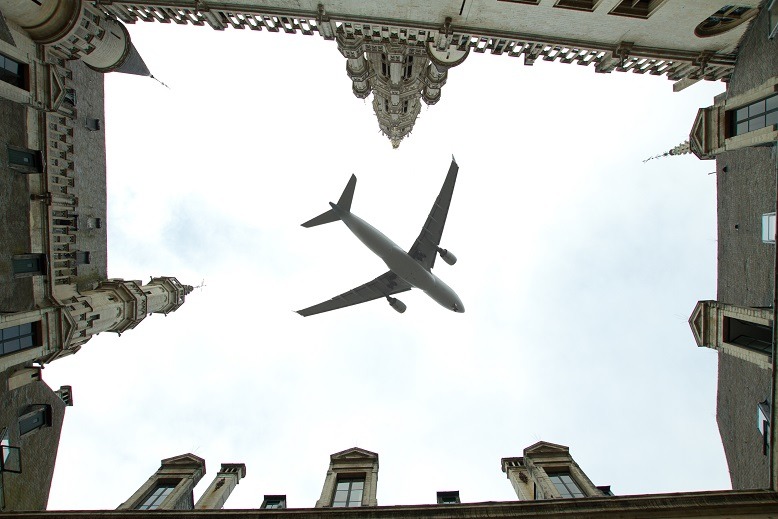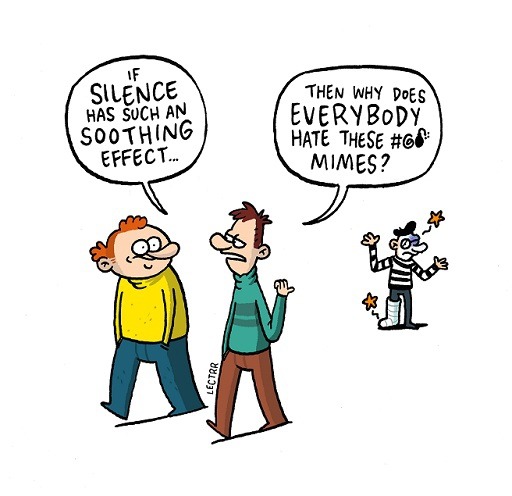Plastic in the oceans. Particulates in the air. Radioactive contamination. These are just a few of the things people are likely to think of when asked to give an example of pollution. There is however a form of pollution we often tend to forget about, even though it affects our lives on a daily basis: noise. According to a recent study of the World Economic Forum, China’s Guangzhou has the most noise pollution in the world, while Zurich has the least. Of the European cities that were included in the study, Barcelona and Paris scored particularly bad, while Vienna and Oslo are havens of silence. The study did not include Brussels, though it can be reasonably assumed that the Belgian capital has a lot of work to do when it comes to reducing harmful noise levels. That applies to Brussels airport as well, which underperforms in noise pollution evaluations and impacts the local population of the area around Zaventem more than airports that are better integrated in their surroundings.
Dangerous noise
The dangers of noise are manifold, and there is increasing scientific evidence that noise is related to serious health problems. These include, not surprisingly, hearing loss and tinnitus, but also hypertension, stress and sleep disturbances, which in turn are related to heart diseases and depression. Hence it should be praised that awareness is growing concerning the dangers of noise. This growing awareness is evidenced by the fact that more scientific research is being conducted on the topic. A few months ago for example, an international conference on noise in Europe was held in Brussels where the World Health Organization presented its latest findings on the effects of noise on human behaviour and health. Also, researchers of the Free University of Brussels developed an app that allows people to measure the amount of noise they are exposed to.

Plane flying over the Grand Place in Brussels. With intense traffic from 6 am to 11pm and frequent night flights over central Brussels, many are arguing that the negative externalities of air traffic, i.e. the noise pollution caused by the Brussels Airport, is a cost that needs to be internalized and covered by the airlines. Credit: Aliaksei Skreidzeleu
Silence and peace
In order to raise awareness of the significance of silence, a new peace initiative was launched last year: Silence for Peace. It organized a three-day sit-in in Brussels at Muntplein, and this year’s silent sit-in will be held in Antwerp on 22 and 23 September. It is perhaps too bold a statement that a causal relationship exists between silence and peace. Silence in itself won’t solve the major, most violent conflicts in the world. Silence will not end all of the problems of the world, but it might be the beginning of their solution. And at least it can be assumed that the world would have been a more peaceful place had certain individuals and politicians at least minimally possessed the ability to stay silent once in a while.
Dialogue
Silence is, if not directly then indirectly, a precondition for a more peaceful world. Peace requires dialogue, and engaging into an open dialogue requires the ability to be silent and to listen. That ability often seems to be lacking in our polarizing and polarized times, in which the public and political debate all-too often takes the form of a duel instead of a dialogue. The polarization of the public debate is, according to many, one of the most important evolutions in politics in recent years and has been spurred by many things, not in the least by social media and the rise of populism. If we want to solve the problems of the world, we could benefit from more understanding, and that can only come from talking with, and listening to, each other. And that requires silence, especially since the essence of a good conversation lies not in the words that are spoken, but in the silences in between them.
Inner peace
Silence is also a precondition of inner peace, and if people are at peace with themselves, when they are not driven by anger and resentment, and not raging against some imaginary form of injustice, they will better be able to engage in peaceful relations with each other. Inner peace, however, is difficult to find in our noisy world. The fact that many people are struggling and looking to find inner peace explains the growing popularity of spiritual approaches to cope with life, like mindfulness and meditation. As silence vanishes from the earth, the noise in our souls is getting louder. Silence is not merely the absence of sound. It is also a state of mind, of being at home in oneself. With that thought I leave you, in silence.


